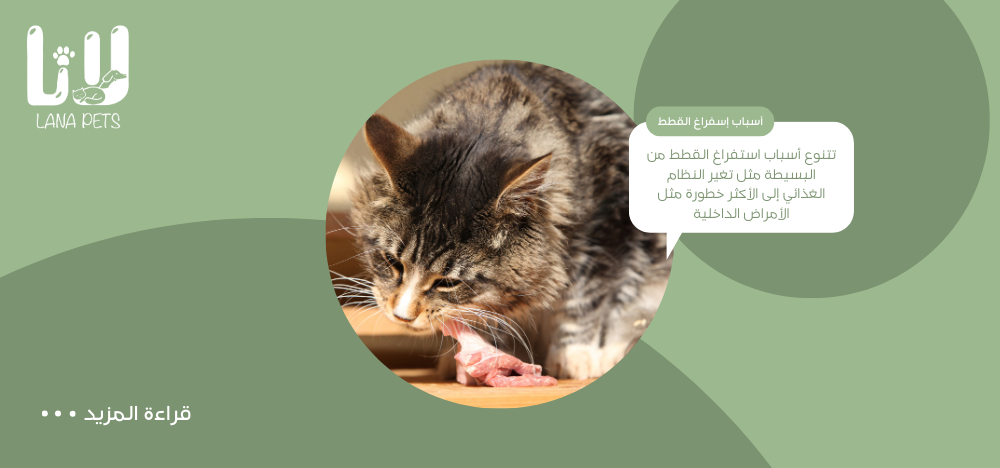
Cat vomiting can be a symptom of a minor health issue or an indication of a more serious condition. Learning how to recognize the causes, symptoms, and treatment of vomiting can help maintain your cat's health and well-being.
Causes of cat vomiting
The causes of cat vomiting vary from simple, such as a change in diet, to more serious, such as internal illnesses. Understanding these causes is essential for determining appropriate treatment and avoiding potential complications.
Diet changes
A sudden change in diet can trigger negative responses from your cat's digestive system. When the digestive system isn't used to a new food, vomiting may result from irritation or an allergy. It's important to introduce any new food gradually over several days or even weeks to avoid this problem.
hairballs
Cats that groom themselves frequently may swallow large amounts of hair, which can accumulate and form hairballs in the stomach. These balls can obstruct food passage and cause vomiting. Using a hairball paste or feeding your cat a high-fiber diet can help reduce this problem.
We recommend you from Lana Bates store
GimCat Hairball Anti-Hairball with Chicken for Cats 50g
If your cat suffers from constant vomiting, this is due to the hair accumulating inside the cat’s stomach because it constantly licks its body in order to clean itself. This juice solves this problem. You give it to the cat orally or over food, which makes the hair exit the stomach through the mouth or excretion.
GimCat Herbal Chicken Flavor Vitamin Solution for Cats
poisoning
Cats consuming toxic substances, such as certain plants, unsuitable medications, or prohibited foods like chocolate and onions, can lead to severe vomiting. This condition requires immediate medical intervention to prevent the poisoning from threatening the cat's life.
internal diseases
Vomiting can be a major symptom of conditions such as pancreatitis, kidney disease, or liver disease. Diseases affecting the digestive system, such as ulcers or gastrointestinal obstruction, can also cause vomiting. Early diagnosis and effective treatment are essential for managing these conditions.
digestive disorders
Some cats may suffer from chronic conditions such as gastritis or inflammatory bowel syndrome, which can cause frequent vomiting. Treatments may include dietary modifications, acid-reducing medications, and, in some cases, anti-nausea medications.
Understanding the causes of vomiting and recognizing the associated symptoms can help cat owners provide appropriate care and make informed decisions about their pet's health. Consulting Lana Veterinary Clinic is essential when vomiting persists or is accompanied by other worrisome symptoms.
How to deal with cat vomiting
Properly managing your cat's vomiting can alleviate symptoms and prevent more serious complications. This includes assessing potential causes, providing appropriate care, and knowing when to visit the veterinarian.
Initial steps to deal with vomiting
When you notice your cat starting to vomit, follow these steps:
- Stay calm: Stay calm because stress can increase a cat's anxiety.
- Evaluate the situation: Is the vomiting a single or recurring event? Check the contents of the vomit for signs such as blood, undigested food, or hairballs.
- Stop feeding: Withhold food for 12-24 hours to allow the stomach to rest. However, be sure to provide water to prevent dehydration.
- Monitor your cat: Pay attention to any changes in its behavior or other symptoms such as lethargy, withdrawal, or lack of interest in food after the specified period.
Providing ongoing care
After the vomiting stops, you can take the following steps to ensure your cat's recovery:
- Reintroduce food gradually: Start with small, light meals such as plain boiled chicken or rice. Avoid heavy or fatty foods until your stomach fully recovers.
- Monitor hydration: Make sure your cat drinks water regularly to avoid dehydration. Provide clean, fresh water in an easily accessible location.
- Continue monitoring: Even after vomiting has stopped, keep an eye out for any new symptoms that may appear, which could indicate a more serious underlying problem.
When to visit Lana Veterinary Specialty Clinic
You should visit the clinic in the following cases:
- If vomiting lasts more than 24 hours.
- If vomiting is accompanied by other symptoms such as lethargy, pain, or loss of appetite.
- If you notice blood in your vomit.
- If your cat is experiencing symptoms of dehydration or any behavioral changes that are concerning.
With proper handling and prompt attention to symptoms such as vomiting, risks can be reduced and your cat's chances of a speedy recovery increased. In all cases, your veterinarian remains the best resource for advice and guidance on how to manage cat vomiting and provide the necessary medical care.
conclusion
Paying attention to your cat's health and recognizing signs of health problems, such as vomiting, can help ensure its health and well-being. Following veterinary advice and providing timely care are key to maintaining a healthy and long life for your pet.
It's important to understand that vomiting, while sometimes harmless, can also be a sign of more serious health problems. Understanding the different types of vomiting and their causes will make you better prepared to provide immediate support to your cat when needed. It's essential to respond to any instances of frequent or severe vomiting with a visit to the veterinarian to ensure there is no underlying health issue.
Ultimately, the responsibility for your cat's health lies in your own hands. Good practice, including regular monitoring, proper nutrition, prompt treatment of health problems, and regular consultations with your veterinarian, all contribute to your cat's safety and health. Let your cat receive the best possible care and enjoy the time you spend with your furry friend without worry.
We hope this article has provided you with the tools you need to better understand and manage cat vomiting. Remember, always consult your veterinarian when in doubt or need, as they are your partners in maintaining your cat's health.
To go to Lana Veterinary Specialized Clinic, click here.

